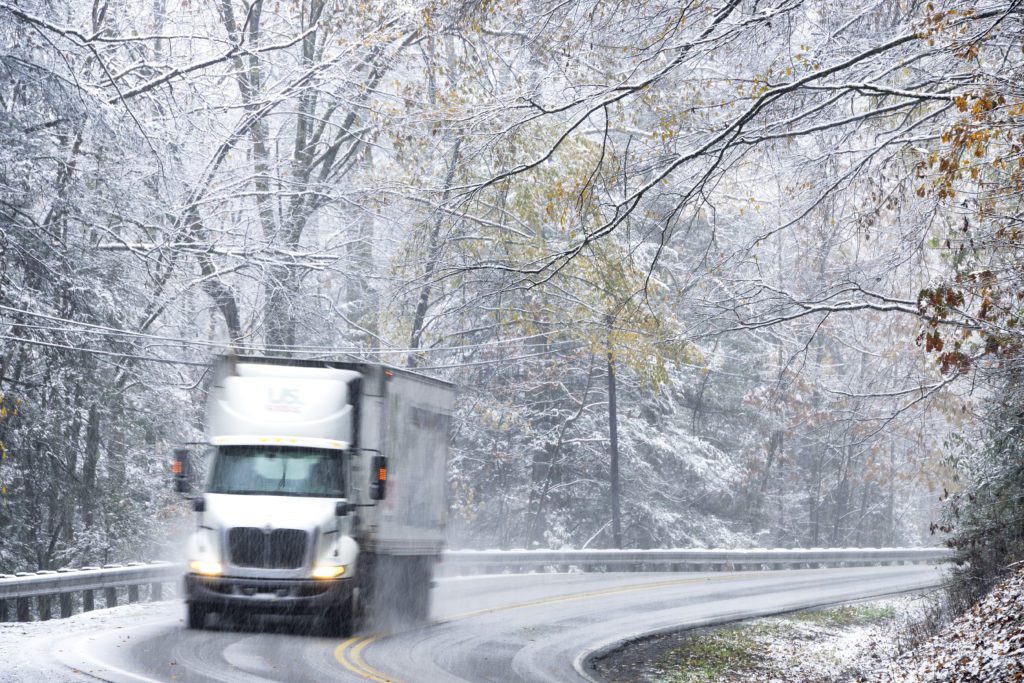DEAR TRUCKERS: WINTER IS HERE IN PENNSYLVANIA
‘Christine’s Law’ Elevates Driver Duties to Remove Snow and Ice
Starting September 2022, drivers on Pennsylvania highways are required by statute to exercise increased vigilance during the winter months. “Christine’s Law”, as it is known, regulates the removal of snow and ice, snowballing the duty of drivers operating vehicles on a Pennsylvania highway to make “reasonable efforts” to remove any accumulated ice or snow from their vehicle – including the vehicle’s hood, trunk, and roof – within 24 hours after the cessation of the wintery precipitation. “Vehicle”, as used here, includes trailers. Failure to do so subjects the driver to a fine of $50.00 for each offense.
Christine’s Law creates a heightened duty for drivers more than that of its predecessor rule. Under the previous, now-repealed statute, drivers were only subject to fines when snow or ice actually became dislodged from their vehicle and struck another vehicle or pedestrian, causing serious bodily injury or death. If the same were to happen now, under Christine’s Law, the operator of a moving vehicle from which ice or snow was dislodged and caused serious bodily injury or death is subject to a $200 – $1,500 fine for each offense.
The language of Christine’s Law makes sure to include “motor carrier vehicle,” making the new regulation applicable to many commercial trucking and transportation vehicles. This means that commercial drivers who find themselves operating vehicles on Pennsylvania highways have the same duty as non-commercial drivers to make reasonable efforts to remove snow and ice from the hood, trunk, and roof of their commercial vehicles.
While the impact of Christine’s Law appears to apply to commercial and non-commercial vehicles alike, the new regulation has several exceptions which appear exclusive to commercial trucking. The duty to make reasonable efforts to remove snow and ice does not apply if the driver of a commercial vehicle is en route to a facility to remove accumulated ice or snow at the time of a traffic stop for non-removal. This duty is also alleviated if complying with the law would cause the commercial driver to violate any other law (state or federal), a workplace safety regulation, or would threaten the driver’s health and safety.
With this new requirement in place, we should expect trucking companies to respond with precautionary practices. Of course, many companies already have established policies and procedures to avoid this safety issue. Companies that have deferred these precautionary measures to their drivers should consider implementing new policies and providing drivers with a means of complying with the law, including providing snow removal equipment at local facilities.
Of note, this law not only applies to Pennsylvania-based companies and drivers, but also to any driver who finds themselves on Pennsylvania roads. Thus, a vehicle domiciled in, say, Arizona, which anticipates traveling through this Commonwealth in wintery months should consider how it will exercise these precautionary measures in the foreign venue. Scheduling an appropriate stop in the driver’s manifest or itinerary should be a factor. Companies may consider working with “competitors” that possess available snow removal equipment in the Pennsylvania locale where a driver expects to be traveling, to allow for use of this equipment. In fact, scheduling a stop for the purpose of snow removal may serve as documentary evidence demonstrating the “en route” exception noted in the law.
Christine’s Law receives its name from the tragic death of Christine Lambert of Palmer Township, Pennsylvania who, on Christmas Day in 2005, was killed by a large piece of ice that crashed through her windshield after becoming dislodged from a passing box truck. Christine’s Law seeks to prevent tragedies like Christine’s death. Most trucking companies always prioritize safety. These changes elevate the industry standard for vehicular snow and ice removal in Pennsylvania.
GERMAN, GALLAGHER & MURTAGH, P.C.
Matthew J. McColgan, Esq.
Tamarrin J. Johnson, Esq.



